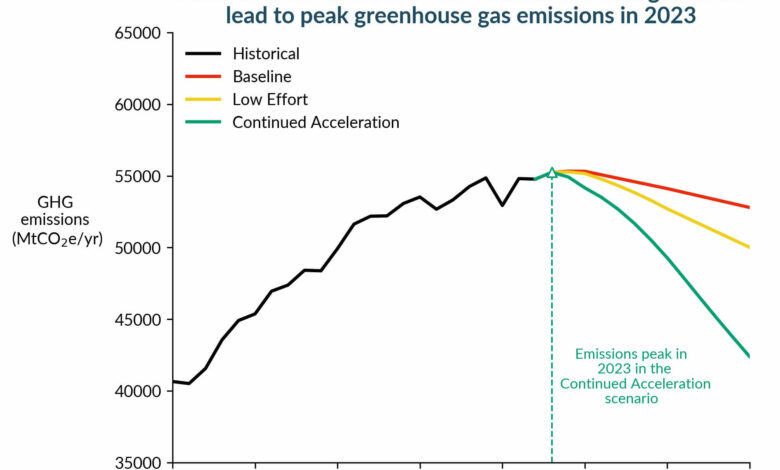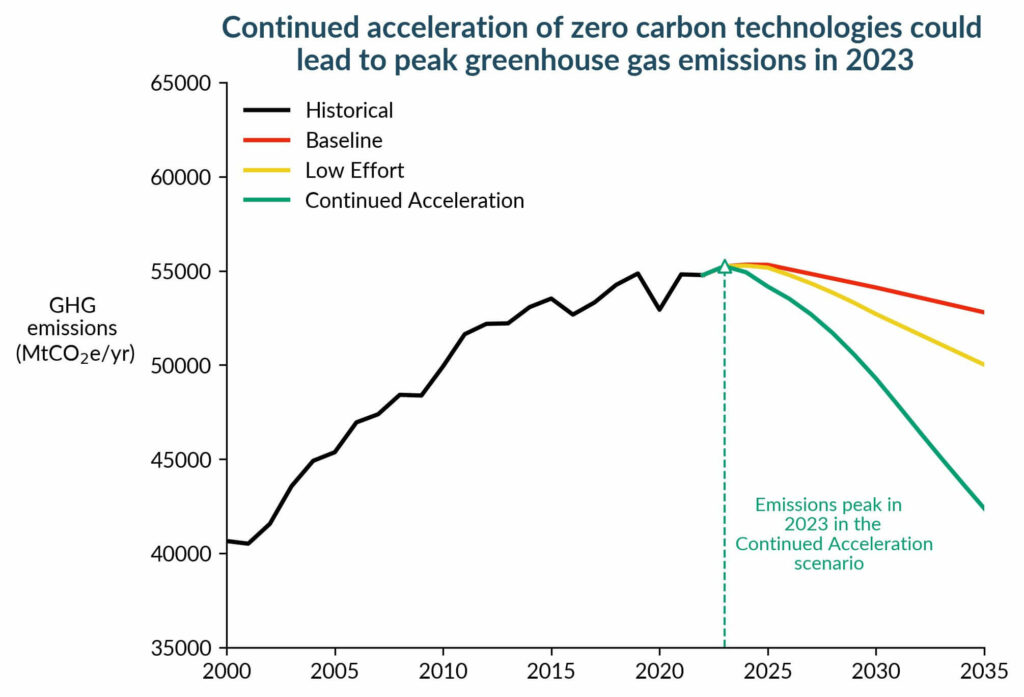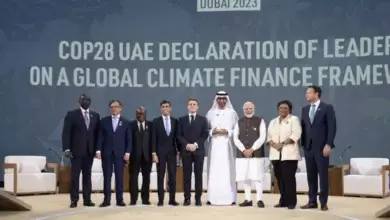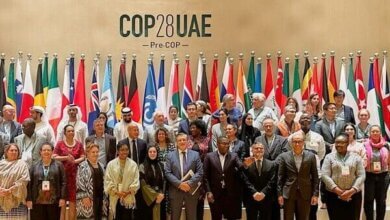COP28 : Could We Be More Optimistic This Time?
Exploring New Grounds for Hope in the Global Climate Dialogue

Before the climate change summit COP28, the world witnessed an undeniable escalation in climate change impacts. This includes increased frequency and intensity of extreme weather events like hurricanes, floods, droughts, and heatwaves. These phenomena have led to significant ecological and human costs – from loss of biodiversity, melting ice caps, and rising sea levels to displaced communities and food and water insecurity. The global average temperatures have continued to rise, setting new records, with the last decade being the warmest on record. These escalating impacts have prompted an urgent call for action and have been the backdrop against which COP negotiations have taken place.
- 1. The Journey of Climate Change Negotiations : From Paris to Dubai
- 2. Current global climate change status in terms of commitments’ implementation
- 3. The Persistent Gap between Promises and Action in Climate Change
- 4. Major Commitments Made at Climate Change Summit COP28
- 5. Climate Change Outcomes at COP 28 : Optimism and continued Concern
- 6. Grounds for Cautious Optimism at Climate Change Summit COP28
- 7. Persistent Challenges and Criticisms
- 8. Moving Forward with Climate Change: What Needs to Change?
- 9. Conclusion: Balancing Hope and Realism in Climate Change Action
- 10. References
1. The Journey of Climate Change Negotiations : From Paris to Dubai
From COP21 in Paris to COP28 in Dubai, the journey of international climate negotiations has seen a series of escalating commitments reflecting the urgency and complexity of global climate change. At COP21, the world united under the Paris Agreement, setting a global action plan to limit global warming to well below 2, preferably 1.5 degrees Celsius. Subsequent COPs have built upon this foundation, each addressing specific aspects of the climate challenge, from funding and technology transfer at COP22 in Marrakech to the finalization of the Paris Agreement Rulebook at COP24 in Katowice.
As the world grappled with the realities of implementing these ambitious goals, COP25 in Madrid delved into the contentious issues surrounding carbon markets, but without significant breakthroughs. The Glasgow Climate Pact at COP26 marked a renewed urgency, calling for an accelerated phase-down of coal and enhanced emissions reduction targets. Then, at COP27 in Sharm El Sheikh, the establishment of a Loss and Damage Fund recognized the need for supporting those most vulnerable to climate impacts.
COP28 in Dubai pushed the envelope further by emphasizing the end of the fossil fuel era and advocating for robust climate finance mechanisms, reflecting a growing consensus on the need for transformative action. Each summit, while punctuated with both achievements and challenges, represents an evolution in global climate governance, underscoring the critical balance between hope for the future and the realism of the challenges ahead. As the world moves forward, the lessons from these summits serve as a guide for the sustained, inclusive, and ambitious action required to confront the climate crisis effectively.
Table 1 : table highlighting the major commitments from COP21 to COP28:
| COP Summit | Location | Year | Major Commitments |
|---|---|---|---|
| COP 21 | Paris | 2015 | Adoption of the Paris Agreement, aiming to limit global warming to well below 2, preferably to 1.5 degrees Celsius, compared to pre-industrial levels. |
| COP 22 | Marrakech | 2016 | Focus on the implementation of the Paris Agreement, particularly on issues related to funding and technology transfer. |
| COP 23 | Bonn | 2017 | Furtherance of the Paris Agreement Rulebook, Fiji Momentum for Implementation. |
| COP 24 | Katowice | 2018 | Finalization of the Paris Agreement Rulebook, agreement on the transparency framework. |
| COP 25 | Madrid | 2019 | Discussions on Article 6 of the Paris Agreement, but no significant consensus achieved. |
| COP 26 | Glasgow | 2021 | Glasgow Climate Pact, increased efforts towards 1.5°C goal, agreement on carbon market rules, and phase-down of coal. |
| COP 27 | Sharm El Sheikh | 2022 | Agreement on the establishment of a Loss and Damage Fund, focus on adaptation and finance. |
| COP 28 | Dubai | 2023 | Emphasis on the “end of the fossil fuel era,” new commitments to climate funds, and reviewing progress towards the Paris Agreement goals. |
2. Current global climate change status in terms of commitments’ implementation
The current global situation regarding climate change and the implementation of commitments is challenging and demands immediate and more ambitious action. Despite decades of diplomatic efforts and agreements, emissions continue to rise. The implementation of National Determined Contributions (NDCs) under the Paris Agreement shows that if current commitments are fully implemented, emissions will still increase by about 8.8% compared to 2010 levels, far from the reduction required to limit warming to 1.5°C [1]. The 2010s was the warmest decade on record, indicating that the world is experiencing significant climate impacts and is not on track to meet the goals set out in various international agreements [2].
Net-zero commitments, a significant feature of many national climate plans, are not on track to meet the 2050 target, with current plans falling short of what is needed to avoid the most catastrophic impacts of climate change [3]. Moreover, current Paris Agreement pledges need substantial enhancement as nations must significantly reduce predicted 2030 emissions to avoid global warming of 2.5-2.9°C, much higher than the targets set out in the agreement [4].
In summary, while there is a broad consensus on the urgency of the climate crisis and some progress in commitment formulation, the pace and scale of implementation lag significantly behind what is needed. The global community is called upon for more significant, immediate actions and transformative changes to meet the targets and avert the most severe impacts of climate change.
3. The Persistent Gap between Promises and Action in Climate Change
There is, indeed, a widespread frustration sentiment regarding the pace and effectiveness of international responses to climate change. The series of COP meetings, including the recent COP28, have indeed been platforms for high-level commitments. However, the gap between promises and practical, measurable action is a critical issue. While there have been advances in setting more ambitious goals and some nations have made significant strides, overall global progress is lagging, especially considering the scale and urgency of the climate crisis.
One of the main challenges is the lack of a strict mechanism for implementation and enforcement of these agreements. This means that while countries may commit to certain targets, the accountability and follow-through vary significantly. The reliance on national interests and the economic implications of climate policies also influence the pace and commitment to implementation.
COP28 and similar summits often result in incremental progress; however, many argue that what is needed is a transformative change in how these agreements are pursued and implemented. This includes integrating climate policies into all areas of governance and business, ensuring finance and technology transfer for adaptation and mitigation in less developed countries, and genuinely engaging with all stakeholders, including civil society and indigenous communities, for more holistic and effective climate action.
4. Major Commitments Made at Climate Change Summit COP28
Key Agreements at COP28
Operationalization of the Loss and Damage Fund
One of the most significant achievements of COP28 was the establishment of a fund to address loss and damage associated with the adverse effects of climate change, especially in vulnerable countries. This development was heralded as a historic move, acknowledging the financial responsibilities and support needed for those disproportionately affected by climate disasters [5][6].
Commitments to Transition Away from Fossil Fuels
COP28 marked a notable shift with increased attention and commitment to transitioning away from fossil fuels. Agreements focused on decreasing reliance on fossil fuels and enhancing renewable energy sources as part of a broader strategy to reduce greenhouse gas emissions and mitigate climate change [7][8].
Global Stocktake: Significance for Global Climate Efforts
- Understanding the Global Stocktake:
- The global stocktake is a process initiated under the Paris Agreement intended to take place every five years. Its purpose is to assess the collective progress towards achieving the goals of the Paris Agreement, including the effectiveness of actions and support provided for mitigation, adaptation, and means of implementation.
- Significance of COP28’s Global Stocktake:
- COP28’s global stocktake was the first since the Paris Agreement and served as a critical evaluation point. It provided a comprehensive overview of where the world stands in terms of climate commitments, the actual progress made, and the gaps that still exist. This assessment is crucial for understanding the effectiveness of current efforts and for planning more targeted and ambitious actions in the future. The outcomes of the global stocktake at COP28 will influence subsequent NDCs (Nationally Determined Contributions) and international climate policy directions [6].
The commitments made at COP28, particularly those concerning the loss and damage fund and the move away from fossil fuels, along with the insights gained from the global stocktake, are significant steps forward in the global effort to address climate change. However, the effectiveness of these commitments will depend heavily on their implementation and the willingness of all stakeholders to increase their ambition and actions in the coming years.
5. Climate Change Outcomes at COP 28 : Optimism and continued Concern
The outcomes of COP28 offer a mix of reasons for both optimism and continued concern. On the optimistic side, COP28 marked a significant moment with the agreement on operationalizing a fund for loss and damage caused by climate change, acknowledging the need for financial support to those most affected [6]. This development is a long-awaited step forward and responds to calls from vulnerable countries for recognition and support. Additionally, the commitment to transition away from fossil fuels and reform fossil fuel subsidies represents a concrete shift towards cleaner energy solutions [7].
However, the global stocktake from COP28 also reminds us of the vast amount of work yet to be done, as it encompasses all elements under negotiation, reflecting the enormity of the task at hand [5]. Nations have signaled a willingness to reduce greenhouse gas emissions, but the specifics of how these reductions will be achieved, and the scale of the commitments, still leave room for uncertainty [9].
While there are certainly reasons to be more optimistic post-COP28 due to tangible commitments and recognition of critical issues, skepticism remains warranted until these commitments are translated into significant and verifiable actions. The outcome of COP28 should be seen as a cautious step forward, with the understanding that optimism should be paired with vigilant monitoring and pressure for the implementation of these commitments.
6. Grounds for Cautious Optimism at Climate Change Summit COP28
Global Emissions Peaking Timelines
The concept of “peaking” greenhouse gas emissions refers to the point at which these emissions reach their maximum level before beginning a steady decline. At the COP28 climate summit, this concept was a central theme and source of hope. There’s an ambitious goal of peaking global emissions before 2025, as noted by experts and scientists. The Intergovernmental Panel on Climate Change (IPCC) highlights that capping emissions before 2025 is crucial to maintain the possibility of limiting global warming to 1.5°C above pre-industrial levels, as per the Paris Agreement goal. With predictions indicating a rise in emissions by 2023, the window for effective action is narrowing. In evaluating our capacity to achieve this critical goal, we must consider both the potential timing of the peak in global emissions and the actions necessary to arrive there promptly. A recent report from Climate Analytics suggests a 70% likelihood that emissions will begin to decline by 2024 [10], provided the current rate of advancement in clean technology persists and efforts to reduce non-CO2 emissions are moderately successful. If these conditions are met, 2023 could be the turning point, thus adhering to the timeframe set by the IPCC.
The following chart from Climate Analytics emphasizes the importance of aggressive action in reducing GHG emissions. The green ‘Continued Acceleration’ scenario demonstrates that rapid implementation of zero-carbon technologies can lead to a peak and subsequent decline in emissions within a very short timeframe, helping to mitigate the worst effects of climate change.

New Climate Change Financial Mechanisms
COP28 marked significant progress with new and enhanced financial mechanisms aimed at addressing climate change. Notably, the operationalization of the Loss and Damage Fund represents a substantial step forward in supporting vulnerable countries affected by climate disasters. This fund is seen as a way to not only aid recovery but also to invest in resilience and adaptation strategies for those most impacted by climate change [5].
Broader Commitments to Renewable Energy
The agreements and discussions at COP28 showed a clear trend towards accelerating the adoption of renewable energy. Countries acknowledged the need to triple renewable energy sources and move away from reliance on fossil fuels. This shift is crucial for reducing emissions and is backed by technological advancements and increasing financial incentives for cleaner energy solutions [11].
Stronger Language on Phasing Out Fossil Fuels
There was a notable shift in the language around fossil fuels at COP28. The commitment to phase out and reduce dependence on fossil fuels was more assertive, indicating a global consensus that the end of the fossil fuel era is necessary for meeting climate goals. This represents a significant ideological shift and sets a tone for future policies and investments [5][12].
Increased Involvement of Non-State Actors and Private Sector Initiatives in Climate Change
COP28 saw an increased presence and commitment from non-state actors including cities, regions, businesses, and investors. These entities are increasingly seen as crucial to accelerating the pace of change and scaling up solutions. Private sector initiatives, especially in the realms of green finance, sustainable technology, and renewable energy, are becoming more prominent and are critical for implementing the large-scale changes needed to address climate change effectively [12].
These reasons for cautious optimism coming out of COP28 reflect an evolving landscape in climate action where the focus is shifting towards implementation and inclusive, accelerated efforts. While challenges remain, the momentum and direction of travel provide a basis for hope and continued engagement.
7. Persistent Challenges and Criticisms
Criticisms Regarding the Pace of Action and the Gap Between Climate Change Commitments and Actual Implementation
The pace of global action on climate change has been criticized for not being swift or ambitious enough to meet the escalating challenges. Despite high-level commitments made at various COP meetings, there is a significant gap between what is promised and what is actually implemented. The criticisms focus on:
- Inadequate Progress: Many argue that the progress made so far is insufficient compared to the magnitude of the climate crisis. Emissions continue to rise, and countries are not on track to meet the targets set in the Paris Agreement.
- Vague Commitments: Some commitments made by countries are non-specific, lack clear timelines, or are not backed by concrete plans, making it difficult to measure and enforce progress.
- Lack of Accountability: There is an evident lack of enforceable mechanisms to hold countries accountable for their commitments, leading to delays or incomplete implementation.
Issues with Enforcement and the Need for Transformative Changes in Governance and Strategy of Climate Change
The effectiveness of climate agreements is often undermined by weak enforcement mechanisms. For substantial progress:
- Strengthening Enforcement: There needs to be a robust framework to monitor, report, and verify countries’ actions, along with clear consequences for non-compliance.
- Enhancing Technical and Financial Capacity: Many countries lack the technical and financial resources to implement their commitments effectively. There is a need for greater international cooperation and support, especially for vulnerable and developing nations.
- Transformative Governance: Current governance structures may need to evolve to address the multifaceted nature of the climate crisis. This includes integrating climate policies across all levels of government and sectors of the economy.
- Engaging All Stakeholders: Effective climate action requires the involvement of all stakeholders, including private sector, civil society, indigenous communities, and others. Their participation ensures diverse perspectives and solutions are considered.
Addressing these challenges requires a collective and intensified effort from all countries and stakeholders, along with a willingness to embrace more ambitious and innovative strategies for climate governance and action.
8. Moving Forward with Climate Change: What Needs to Change?
Changes in Tactics and “Team Members” in the Climate Action Sphere
- Integrated and Collaborative Approach:
- Shift from isolated efforts to a more integrated approach involving all sectors and levels of government, businesses, and civil society. This means breaking down silos and fostering cross-sectoral partnerships that leverage the strengths of each “team member.”
- Encourage interdisciplinary research and innovation teams that include scientists, policy makers, entrepreneurs, and community leaders to develop and deploy climate solutions.
- Empower Local Action:
- Strengthen the role of local governments and communities in climate action. Local entities often have a better understanding of the unique challenges and opportunities they face and can drive effective change at the ground level.
- Include indigenous and marginalized communities in decision-making processes, respecting their knowledge and rights, and ensuring that climate action is equitable and inclusive.
Specific, Actionable Steps for Governments, Corporations, and Civil Society
- For Governments:
- Enact and enforce strong climate policies and regulations, including setting clear, ambitious targets for emission reductions, renewable energy adoption, and conservation.
- Invest in green infrastructure and technology and provide incentives for businesses and individuals to adopt sustainable practices.
- Increase funding for climate research and adaptation projects, particularly in vulnerable regions.
- For Corporations:
- Commit to net-zero emissions and implement sustainable practices in all aspects of business operations. This includes investing in renewable energy, improving energy efficiency, and adopting circular economy principles.
- Disclose climate risks and integrate climate considerations into corporate governance and decision-making processes.
- Collaborate with other sectors and invest in community-led climate solutions to ensure broader impact.
- For Civil Society:
- Engage in advocacy and public awareness campaigns to keep climate change at the forefront of the public and political agenda.
- Support and participate in community-based adaptation and mitigation projects, leveraging collective action for more significant impact.
- Hold governments and businesses accountable for their climate commitments and advocate for transparency and inclusivity in climate policies and actions.
As we move forward, the need for transformative change in how we address climate change is clear. It requires not just incremental adjustments but a reimagining of roles and collaboration across all sectors of society. By adopting these suggested changes and actionable steps, we can hope to accelerate our path towards a sustainable and resilient future.
9. Conclusion: Balancing Hope and Realism in Climate Change Action
In addressing the climate crisis, the journey from COP21 to COP28 has been marked by a series of ambitious commitments and evolving global dialogue. The key points made throughout the discussion highlight both the progress and the persistent challenges in climate action:
- Progress and Commitments: Significant steps have been made in understanding and committing to actions necessary to mitigate climate change impacts—especially notable are the agreements on financing loss and damage, the commitment to transition away from fossil fuels, and the incorporation of more inclusive and expansive climate action plans.
- Persistent Challenges: Despite these advancements, the pace of actual implementation, enforcement of commitments, and the tangible impact of policies remain areas of concern. The gap between promises and action, along with the need for more transformative changes in governance, continues to be critical hurdles.
Balancing Optimism and Realism
As we reflect on the outcomes of COP28 and previous climate summits, it’s essential to maintain a balance between optimism and realism. There is a genuine basis for hope given the increasing global consensus, technological advancements, and heightened public awareness and engagement. However, this optimism must be tempered with a realistic understanding of the urgent need for scaled-up actions, the complexities of international cooperation, and the significant transformations required in our societies and economies.
Call to Action
To move forward, it’s vital that everyone—governments, corporations, civil society, and individuals—remain engaged, informed, and proactive. Here are some calls to action:
- Stay Informed: Understand the implications of climate change and the necessary policies and technologies that will lead to a sustainable future.
- Advocate and Support: Support policies and initiatives that align with climate goals, and advocate for greater action and accountability from decision-makers.
- Participate in Solutions: Engage in community and global efforts to reduce emissions, transition to renewable energies, and adapt to climate impacts.
In concluding, while the path forward is undoubtedly challenging, it is through sustained engagement, innovative solutions, and collective action that we can hope to address the climate crisis effectively. Let’s carry forward the commitments made with the determination to see them realized, and inspire and support each other in this critical global endeavor.
10. References
- UNFCCC: New Analysis of National Climate Plans: Insufficient Progress Made, COP28 Must Set Stage for Immediate Action
- UN : Goal 13: Take urgent action to combat climate change and its impacts
- UN: For a livable climate-Net-zero commitments must be backed by credible action
- UNEP : Nations must go further than current Paris pledges or face global warming of 2.5-2.9°C
- UNFCCC : COP28 Agreement Signals “Beginning of the End” of the Fossil Fuel Era
- CarbonBrief : COP28: Key outcomes agreed at the UN climate talks in Dubai
- IISD : “The Most Significant Decisions Since the Paris Agreement” – IISD’s Experts on COP 28 Outcome
- UNDRR: COP28 ends with progress on loss and damage, Santiago Network and transition away from fossil fuels
- Justsecurity : Assessing COP 28: The New Global Climate Deal in Dubai
- Climate Analytics : When will global greenhouse gas emissions peak?
- STP : COP28 News Recap: United Nations Climate Conference, Everything You Need to Know
- Climate Axtion Network: COP28: New path to transition away from fossil fuels marred by lack of finance and loopholes





